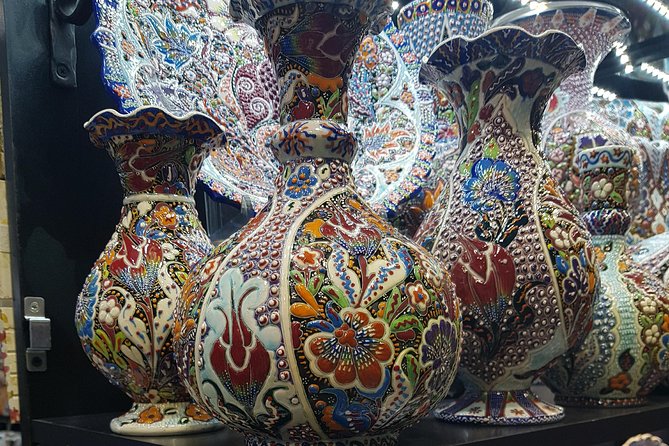Shopping Therapy
Amidst the hustle and bustle of modern life, many individuals turn to the soothing sanctuary of shopping therapy. The allure of perusing shelves and selecting treasures holds a magnetic pull for those seeking solace.
But is this merely a fleeting escape, or does it offer deeper benefits that resonate within? Through a lens of understanding and insight, the complexities of shopping therapy unfold, shedding light on its potential to uplift and heal.
Join the exploration of this phenomenon to uncover the hidden depths of its impact on mental and emotional well-being.
Key Points

- Retail therapy boosts mood through endorphin release.
- Shopping empowers individuals, promoting emotional well-being.
- Mindful shopping enhances mood and self-perception.
- Consumer behavior insights reveal the emotional impact of shopping.
Benefits of Retail Therapy

Retail therapy, often touted as a mood-lifter, offers individuals a comforting escape through the act of shopping for desired goods. Research on retail therapy benefits indicates that engaging in this form of shopping therapy can positively impact emotional well-being.
Studies have shown that the act of shopping can trigger the brain to release endorphins, often referred to as ‘feel-good’ hormones, which can elevate mood and reduce stress levels. Plus, the process of browsing, selecting, and purchasing items can provide a sense of control and empowerment, further contributing to a person’s overall sense of well-being.
Impact of Shopping on Mood
Feeling uplifted or soothed after a shopping spree is a common experience many you can relate to, as the act of shopping often has a direct impact on one’s mood. The process of purchasing items that one desires can lead to mood enhancement and a sense of emotional well-being. Understanding consumer behavior in this context reveals how shopping habits can influence one’s overall mood positively.
Whether it’s buying something new to lift spirits or indulging in retail therapy to de-stress, the act of shopping is intertwined with emotional responses. Recognizing the link between shopping and mood can help individuals leverage this connection to improve their emotional state through mindful and intentional shopping experiences.
Retail Therapy Vs. Traditional Therapy

After experiencing the uplifting effects of shopping on mood, one may wonder about the comparison between the benefits of retail therapy and traditional therapy.
Retail therapy, with its immediate gratification and tangible results, can provide a temporary boost in mood. In contrast, traditional therapy offers deeper and long-lasting effects by addressing underlying emotional issues.
The effectiveness of each therapy depends on individual preferences and needs. Retail therapy may be more culturally influenced, as societies often promote consumption as a coping mechanism. Traditional therapy, on the other hand, is rooted in psychological principles and tailored to each person’s specific challenges.
Understanding the nuances of both therapies can help individuals make informed decisions about which approach best suits their emotional well-being.
Tips for Effective Shopping Therapy

For a successful shopping therapy experience, consider these practical tips to enhance your mood and well-being.
When engaging in shopping therapy, it’s essential to view it as a form of self-care rather than just a materialistic activity. Start by setting a budget to avoid unnecessary stress later. Make a list of items that truly bring you joy or fulfill a practical need.
Practice mindfulness by staying present in the moment and focusing on how each purchase makes you feel. Reflect on your choices afterward to understand your motivations and preferences better. Utilize shopping therapy as a tool for personal growth by exploring your tastes and styles.
Understanding the Psychology Behind Shopping
Understanding the psychology behind shopping reveals how our emotions and mindset influence our purchasing decisions and overall shopping experience. Shopping isn’t merely a transactional activity but a complex interplay of various factors that drive consumer behavior and emotional wellbeing.
To delve deeper into this phenomenon, consider the following insights:
- Consumer Behavior: Examining why individuals buy certain products or brands provides valuable insights into their motivations and decision-making processes.
- Emotional Wellbeing: Understanding how shopping can impact mood and self-perception sheds light on the emotional aspects of consumer habits.
- Retail Trends: Observing shifts in shopping preferences and habits over time helps identify emerging patterns in consumer behavior.
- Consumer Habits: Studying repetitive behaviors and routines in shopping can offer clues about psychological triggers and motivations underlying purchases.
Incorporating Shopping Therapy in Daily Life

Incorporating the concept of shopping therapy into daily life can provide a meaningful avenue for emotional well-being and self-care. Making it a daily indulgence can contribute to a sense of self-care that nurtures emotional wellness.
By practicing mindful spending habits, you can derive gratification from their purchases while avoiding impulsive decisions. Taking the time to select items that truly resonate with personal preferences and values enhances the therapeutic benefits of shopping.
Whether it’s treating oneself to small luxuries or investing in items that bring long-term satisfaction, integrating shopping therapy into daily routines can promote a sense of fulfillment and joy. Embracing this approach to shopping allows individuals to prioritize self-care and emotional wellness in a mindful and intentional manner.
Potential Drawbacks of Retail Therapy
While retail therapy can provide temporary relief, it’s essential to recognize the potential drawbacks associated with this coping mechanism.
-
Consumer habits: Engaging in frequent retail therapy sessions can lead to the development of unhealthy consumer habits, where individuals rely on shopping excessively to manage their emotions.
-
Impulse buying: Retail therapy often involves impulse buying, where individuals make unplanned purchases to satisfy immediate emotional needs, leading to regret and financial strain later on.
-
Financial impact: Excessive retail therapy can have a significant financial impact, potentially resulting in debt accumulation and financial instability.
-
Emotional dependency: Over-reliance on retail therapy can create emotional dependency on material possessions for happiness, hindering personal growth and emotional well-being.
It’s crucial to approach retail therapy mindfully to avoid falling into these potential pitfalls.
Seeking Professional Advice for Shopping Therapy

To navigate the potential pitfalls of retail therapy, seeking professional advice for shopping therapy can provide valuable insights and guidance tailored to individual needs and circumstances. Professional advisors equipped with knowledge of effective shopping techniques and therapy resources can help individuals make informed decisions and develop healthier shopping habits. By working with these experts, you can learn to identify triggers that lead to excessive shopping, implement strategies to curb impulsive buying, and cultivate a more mindful approach to shopping. Below is a table showcasing how seeking professional advice can positively impact your shopping behavior:
| Benefits of Seeking Professional Advice for Shopping Therapy |
|---|
| Personalized guidance tailored to individual needs |
| Strategies to manage impulsive buying |
| Tools to identify triggers for excessive shopping |
| Support in developing mindful shopping habits |
Common questions
Can Shopping Therapy Be a Sustainable Way to Improve Mood in the Long Term?
Improving mental health and well-being involves sustainable practices. Emotional regulation and self-care are crucial for long-term mood enhancement. While shopping therapy may provide temporary relief, establishing stable habits like mindfulness or exercise is more sustainable.
How Can One Differentiate Between Healthy Shopping Therapy and Compulsive Shopping Behavior?
When differentiating between healthy shopping therapy and compulsive shopping behavior, individuals must focus on emotional triggers and coping mechanisms. Developing impulse control and self-awareness are key in determining the balance between fulfilling needs and avoiding destructive habits.
Are There Specific Types of Products or Stores That Are More Effective for Shopping Therapy?
When looking for a shopping experience, you can benefit from considering the product selection and store atmosphere. Budgeting tips and mindful shopping practices can enhance the overall shopping therapy experience and promote a healthier relationship with shopping.
What Are Some Signs That Indicate When Someone May Need Professional Help for Their Shopping Habits?
When someone’s shopping habits lead to emotional triggers or become their primary coping mechanism, it may be time for professional help. Financial consequences and lack of self-reflection are signs that intervention could be beneficial.
Can Shopping Therapy Be Effective for Individuals With Different Personality Types or Backgrounds?
Shopping therapy can have varying effectiveness based on personal preferences and cultural influences. Its impact on mental health and therapeutic benefits differ among individuals. Understanding these factors is crucial in utilizing shopping therapy for diverse backgrounds.
Last Words
To sum it up, shopping therapy offers a unique and effective way to improve one’s mental and emotional well-being. By understanding the benefits, impact, and psychology behind this practice, you can harness the healing power of retail experiences in their daily lives.
While it’s important to be mindful of potential drawbacks, seeking professional advice can help maximize the benefits of shopping therapy. Embrace the transformative nature of shopping and let it nurture your soul on the path to relaxation and rejuvenation.